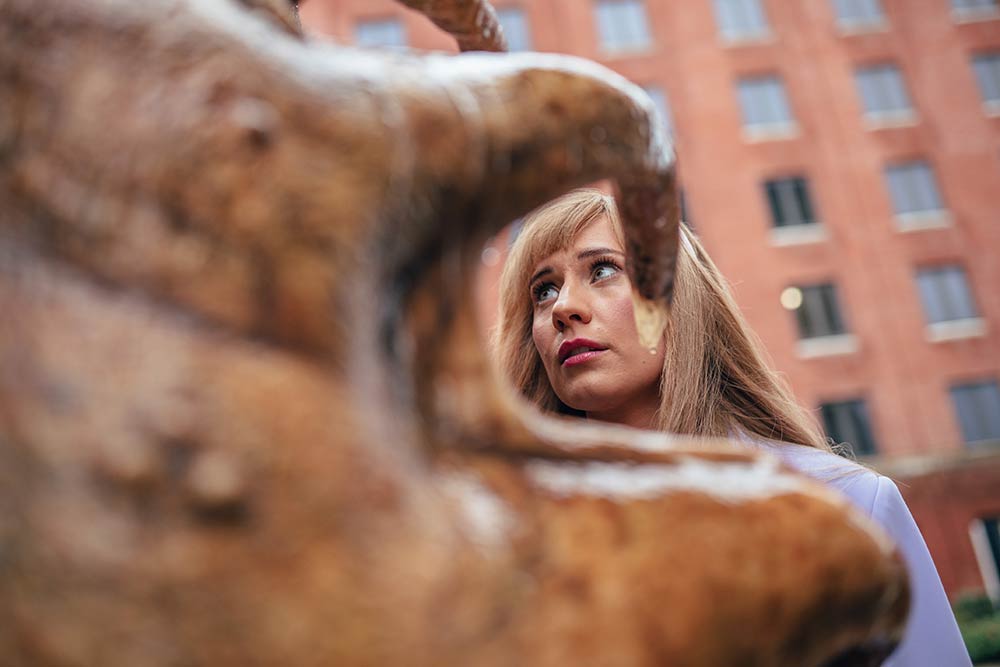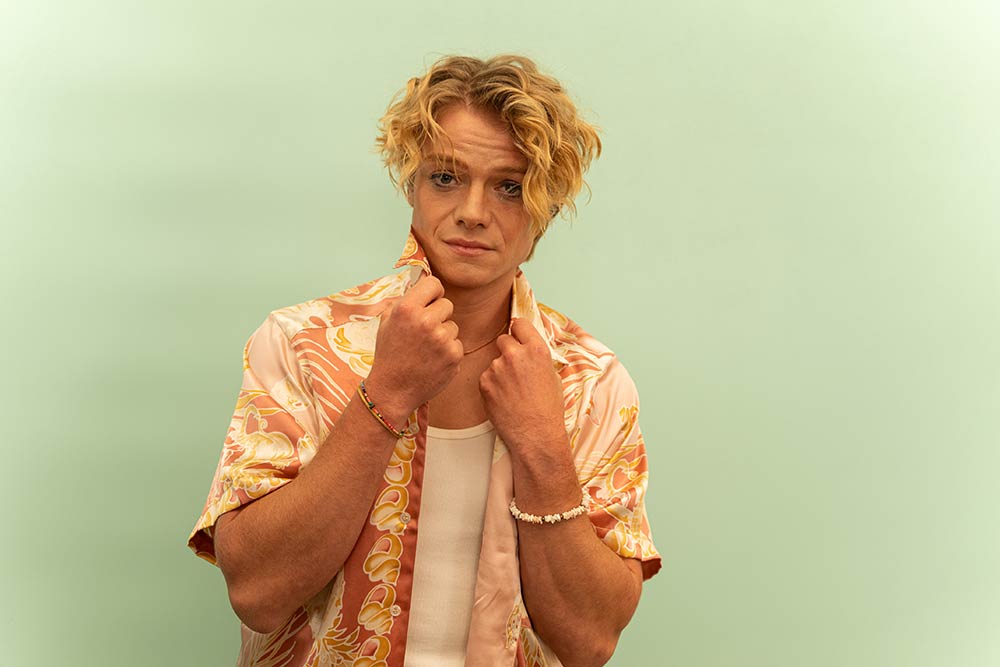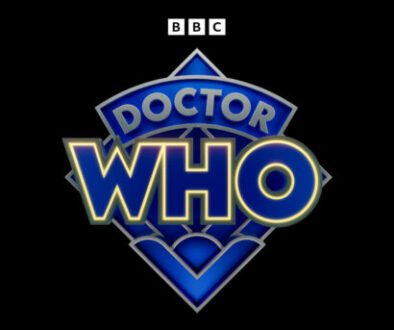2nd Opinion, Take 1 “Dot and Bubble” – The Darkest Ending in Doctor Who’s history?

Gustaff Behr reviews the fifth episode of Series 14.
Much like “73 Yards” the week before, “Dot and Bubble” was created while Ncuti Gatwa was still under contract with Netflix show Sex Education. These episodes were filmed simultaneously, with Ncuti’s first day featuring the twist reveal at the end. If anyone doubts his acting ability, remember that his first-ever scene on the show was this one. But more on that later. For now, let’s focus on arguably one of the most hated characters in Doctor Who: Lindy Pepper-Bean (Callie Cooke).
Lindy’s character initially seems to fit the self-absorbed mold of her Finetimer peers perfectly. The episode does a great job of depicting her as spoilt, vain and constantly seeking validation, much like a typical social media-addicted Gen Z-er in 2024. But then, the script cleverly deceives the audience by suggesting there’s more to her. Lindy starts to accept Ruby and the Doctor’s help, shows genuine horror at the slug-creatures killing her friends, and displays endearing awkwardness around Ricky September. These moments hint at a likable persona, seemingly poised to break free from her community’s shallow lifestyle. I have to admit, I was taken aback by her betrayal of Ricky later on. For a while, it really seemed like the episode was about a young woman learning to be a better person. Well played, Russell.
Still though, for the bulk of the episode, I was firmly in the camp of wanting her character to die (she was insufferably annoying), believing that her death was necessary for the story to be worth my time. While she didn’t die onscreen, I found immense satisfaction in the Doctor’s assertion that Lindy and the rest of her pack would die if they tried to survive on their own. Having been led by the hand for so long, they lack the skills to fend for themselves and in my opinion, a slow, painful death is a far more fitting end for these characters.

Sharing many similarities with the Black Mirror episode “Nosedive”, Russell does manage to put his own spin on the ‘social media gone mad’ trope. The script does a fantastic job painting the ‘addicted to social media’ idea onto the story canvas. The Finetimers are so obsessed with their bubbles that they literally ignore anything happening outside them…much like the echo chambers you find online. They are so obsessed with validating each other that they can’t even see the man-eating slugs or hear anyone screaming. Characters in the story follow commands so rigidly that they are incapable of independent thought, illustrated by Lindy’s inability to walk in a straight line without being told. This mirrors how some people uncritically adopt buzzwords and believe everything they read online to such a degree that they can’t form their own opinions anymore and even dismiss any opinion that doesn’t align with their worldview. The slugs, moving exceedingly slowly, pose no threat to anyone capable of thinking or acting independently. This situation is reminiscent of how some individuals today are easily ‘triggered’ and extremely unsettled by minor issues that most normal folk simply shrug off and move past.
But, the script delves even deeper!
Ricky September (Tom Rhys Harries), originally named Richard Coombes, changed his name after gaining 50,000 followers. Sharing this information gives Lindy exactly what she needs to throw him under the bus later on.
Maybe Russell is trying to tell us to not share everything online?

Speaking of Ricky, I like him. He is shown to be the only normal person who literally goes outside to touch grass instead of wasting his life online. He is betrayed and killed because of wanting to do something kind…so nice guys finish last? The script’s multiple interpretations and real-world metaphors make “Dot and Bubble” a fascinating watch. Even after the episode, I found myself wondering if Ricky’s kindness in the brief thirty minutes actually meant he wasn’t a racist, or if he was, but the episode simply didn’t present any evidence of it during his limited screen time.
Open to interpretation, I guess?
Initially, when I heard this would be another Doctor-lite episode, I was skeptical. With only eight episodes in the season, it seemed disappointing that the Doctor wouldn’t be in at least 25% of them. However, the Doctor’s presence is strongly felt throughout with Ncuti’s role as the ‘guide’ working surprisingly well. Although his scenes likely didn’t take long to film, his presence as the ‘guy in the chair’, guiding Lindy through trouble and enduring her rebuttals and complaints, makes her rejection of him at the end even more impactful. It’s a visceral and raw moment that hits its mark. There’s also something profoundly significant about him essentially saying she can be as racist as she wants to be towards him, in exchange for letting him help one final time. That’s quintessentially the Doctor, isn’t it?

But what clinches this episode for me is how utterly pointless it feels. It probably has one of the darkest endings in Doctor Who’s history. The Doctor’s efforts result in little more than temporarily extending the lives of a small group of selfish, spoiled, bigoted individuals, while most of their kind are slowly devoured due to one racist girl’s false claim that Ricky was going back to rescue them. The entire struggle, overcoming all the Mantraps, ultimately amounts to nothing. The Doctor even acknowledges this by alternating between shedding silent tears and screaming in frustration as the people he tried to save reject his help and choose to sail off to their deaths.
In summary, Series 14 has made significant strides in quality since its lackluster beginnings with the first and second episodes, which ranged from abysmal to merely average. The subsequent episodes have showcased inventive storytelling and engaging plots, making the series a pleasure to watch. Here’s hoping this week’s episode continues to impress and maintains the upward trend in creativity and excitement.








